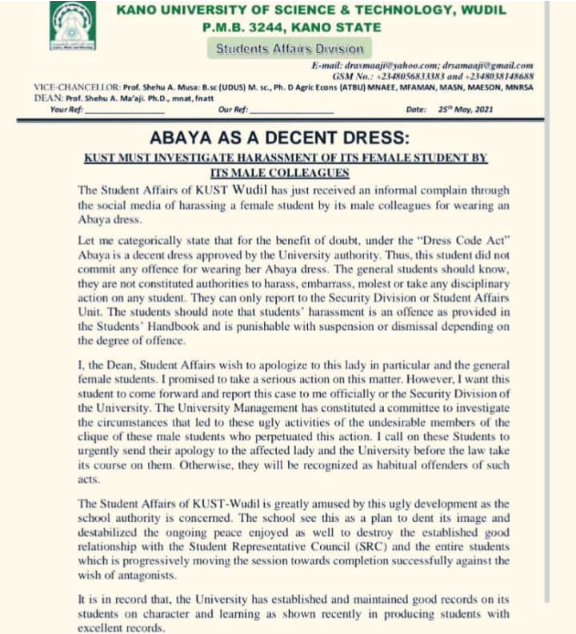
The recent plan by the Federal Government to convert one university in each of the six geo-political zones in the country to a ‘mega university’ in a bid to address the problem of low admission quota in existing universities best illustrates the crisis in the nation’s education system from primary to tertiary.
Having some mega universities is the outcome of the Governor Peter Obi-led Technical Committee on Recommendations of the Needs Assessment of Nigerian Universities (CNANU). By converting some of the existing universities to a mega university, the committee intends to expand admission quota from its present meager level of less than 30,000 admitted by some universities to 200,000 students.
Other things recommended by the committee include the need for both federal and state governments to fund education adequately, especially university education; incorporating people with stake in academics in the governing councils and boards of universities, especially external members to ensure better management of universities; and promotion of post-graduate education and upgrading the academic qualifications of all lecturers to doctorate level within a specified period.
It is good that government is becoming abreast of the crisis facing the nation’s education system, especially at the tertiary level, which it wants to address by upgrading presumably six federal universities into mega universities.
By government’s parameters, it is apparent that a mega university is by size alone. It wants universities that will absorb between 150,000 and 200,000 in the medium term. Government should understand that what makes a mega university is beyond increasing the number of its students’ intake alone.
Has government considered the infrastructural and manpower implications of what it intends to do? This projection is coming at a time when the newly established nine federal universities are yet to take-off fully.
Perhaps some of them may benefit from the conversion to mega university initiative. It is also coming at a time most of the existing federal universities are groaning under poor funding and depleting manpower.
But where are the teachers that will teach in the six mega universities? It is public knowledge that the available academic staff in most federal universities is not enough.
There is the need for expansion of the libraries as well as science laboratories in the universities to be converted mega ones. More teachers, more libraries and more laboratories will translate to more funding. Is the federal government ready to fund university education well?
If you ask me, I will say no. It is not that there is not enough money to adequately fund university education in the country, the fact is that the government has not demonstrated enough political will to fund university education in the country.
I had a discussion a few days ago with my brother and friend who teaches in a university in South Africa, Prof. Clifford Odimegwu, on the falling standard of education in Nigeria, especially at tertiary level and he confirmed my fears that all is not well with our education system from primary to university. Our views are not new.
Those in the system are aware of the rot to the extent that some university graduates cannot write well.
Their class works manifest the fallen standard that is being talked about on a daily basis. What type of education really does the federal government envisage for its citizens? Is it productive education or mass production of certificated illiterates?
I am not an expert on education issues but I know from my little training in that area of knowledge that the base of any nation’s education pyramid is always too broad while the apex is very thin.
The base level, from nursery to primary is an all-comers affair. It is broad because every child is expected to pass through this phase of education. The middle is thin.
Those expected to profit from the middle of the pyramid include secondary school pupils, some vocational and technical/trades schools and teacher training colleges. The third level, which is the university, is the thinnest of the pyramid. In fact, it is its apex.
Because of the peculiar nature of the nation’s education system, the university has of necessity shared this level with polytechnics and colleges of education. What this education pyramid shows is that all Nigerian children should attend primary schools.
After primary school, some of them will be weaned out of the system and those that survived will proceed to secondary school of six years duration. But with nine years of compulsory education for all Nigerian children, they are expected to attend up to JSS3.
After the second stage, those that performed well will struggle either to proceed to the university, polytechnic or college of education. It is, therefore, given that only a few bright ones will eventually make it to the university and not everybody.
It is true that not every child is a university material. By that, I mean that not every child will be eligible to attend the university. While some may be good for polytechnics, others may be okay for colleges of education or technical schools but definitely it is not every child that will proceed to the university.
The confusion in the nation’s education system is that every child will leave primary and enter secondary school and from there to university without branching out to another level of schooling. Such a magic does not happen anywhere in the world.
No education system is so absorbent that every primary school pupil will enter secondary and then proceed to the university. Where does excellence come in? What room do we have for the gifted child? These are some of the questions urgently begging for answers.
Making every level of our education an all-comers affair will kill the system one day. Government should have a workable philosophy of education in place. Its policy of education must be guided by sound philosophy which can be altered from time-to-time as the need arises. And whatever philosophy we want to inculcate in our citizens, there should be regard for excellence, merit and truth.
Unfortunately, the merit and excellence component of our philosophy of education have been vitiated by quota system of admission to unity schools and all federal institutions of higher learning in the country. Quota system of admission, in a way, discourages merit. It does not recognize fairness and justice to all, irrespective of tribe.
It, at times, mocks at hard work. The dilemma of the nation’s education system is that it neglects merit in favour of quota. Appointment of vice chancellors of universities is now based on quota and not merit. Recruitment of staff in some universities is now based on quota, religion and other extraneous factors that have nothing to do with merit or excellence.
It is even worse in some faith-based institutions. Let me paraphrase one maxim that I can’t even remember its author that seems to portray the Nigerian dilemma whether in education or in politics and it reads something like this, “a nation that tolerates shoddiness in philosophy because it is a noble profession and detests excellence in plumbing because it is a lowly profession, neither its theories nor its pipes will hold water.”
Until Nigeria starts recognizing excellence and merit as our national ethos, we cannot proceed anywhere near the development goals we have been setting long before year 2000 dawned on us. Not even the vision 20-2020 will be realized when merit is not recognized in our education system. No amount of mega universities will do the magic.
Every nation must be built on its material culture and that material culture should promote fairness, merit and excellence.
China is on top today not because of quota system, neither is Japan nor America. Nigeria should wake up. Already there is massive unemployment even among university graduates. What Nigeria needs now is technical schools/institutes where students will learn trades that will make them self-employed.
Nigeria’s hope for advancement lies in having young well-rounded technicians and not mass production of degree certificate holders that are unemployable. Our universities should shed the toga of being certificate mills to one that turn out well enlightened citizens.
The craze to produce First Class graduates by private universities, which some critics have dubbed a marketing strategy, should be checked. Employers of labour should not overemphasize on First Class graduates alone.
Other class of graduates can also perform well. Let our education planners reform all levels of our education system and lay emphasis on hard work, excellence and productivity and not on paper qualification alone.

